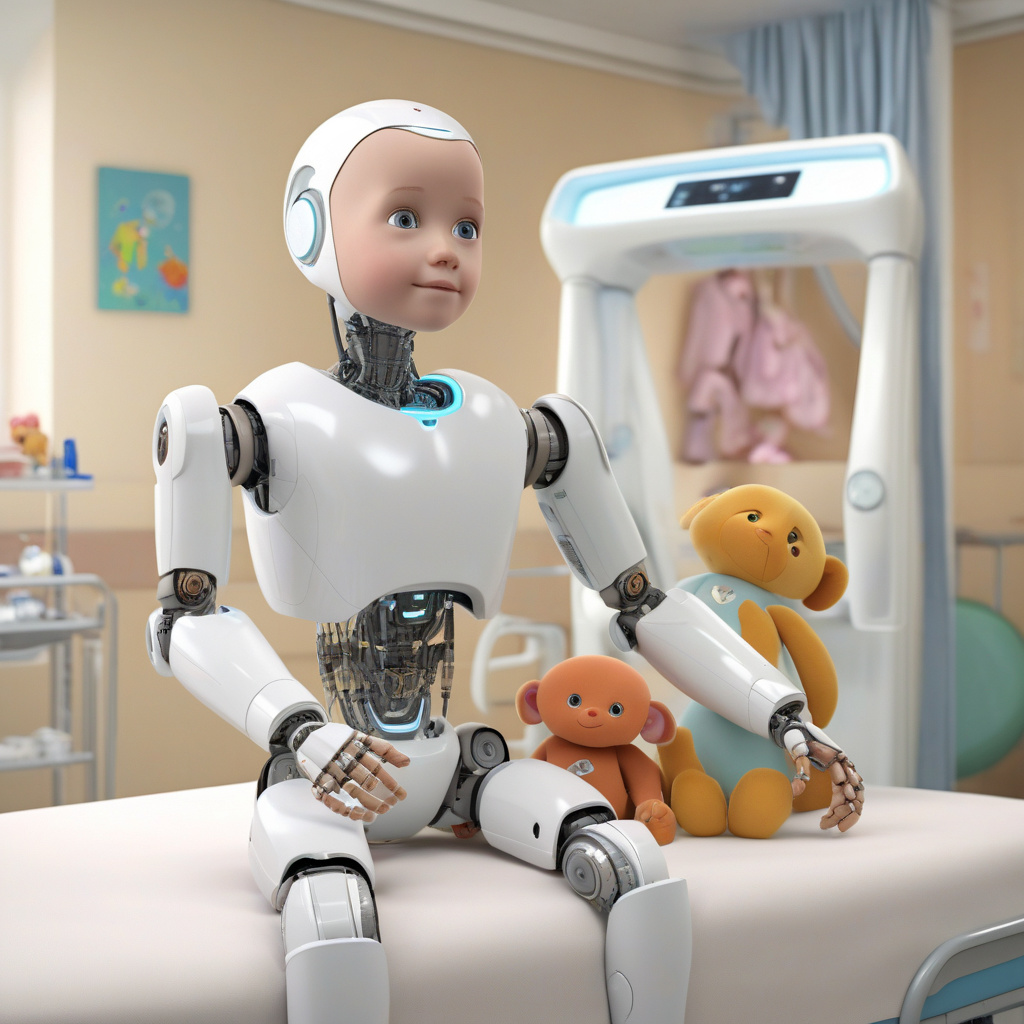AI Robot ‘Robin’ Revolutionizes Emotional Support for Children in US Hospitals
In the fast-paced world of modern healthcare, the introduction of AI technology has been nothing short of revolutionary. One such groundbreaking innovation is the AI robot ‘Robin,’ designed to provide emotional support to children in hospitals across the United States. This cutting-edge technology not only engages with young patients on a personal level but also helps in remembering crucial details, ultimately easing stress and bringing comfort to those in need. Moreover, ‘Robin’ plays a vital role in supporting overworked medical staff, highlighting the symbiotic relationship between technology and human compassion in the healthcare sector.
The concept of utilizing AI robots for emotional support in healthcare settings may seem futuristic, but in reality, it has already started making a significant impact. Children facing medical challenges often experience fear, anxiety, and loneliness during their hospital stays. In such instances, ‘Robin’ steps in as a friendly and empathetic companion, offering comfort and companionship when it is needed the most. By engaging with patients through conversations, games, and interactive activities, the AI robot creates a sense of normalcy in an otherwise stressful environment.
One of the key features that set ‘Robin’ apart is its ability to remember details about each child it interacts with. By recalling previous conversations, preferences, and interests, the robot can establish meaningful connections with young patients, fostering a sense of trust and familiarity. This personalized approach not only enhances the overall experience for children but also demonstrates the potential of AI technology to adapt to individual needs and preferences.
Furthermore, the role of ‘Robin’ in supporting medical staff should not be underestimated. In busy hospital settings where healthcare professionals are often stretched thin, the AI robot serves as a valuable ally in providing emotional care to patients. By assisting with non-medical tasks, engaging children in recreational activities, and offering emotional support, ‘Robin’ allows medical staff to focus on essential clinical duties, ultimately improving overall patient care.
The implementation of AI technology such as ‘Robin’ in children’s hospitals underscores the importance of integrating innovation with empathy in healthcare settings. While the robot’s primary function is to provide emotional support, its impact goes beyond comforting individual patients. By enhancing the overall well-being of children, reducing stress levels, and supporting medical staff, ‘Robin’ contributes to a more holistic and patient-centered approach to healthcare.
As we look to the future of healthcare, the success of AI robot ‘Robin’ in children’s hospitals serves as a testament to the transformative power of technology in enhancing patient experiences. By combining advanced AI capabilities with a human touch, healthcare providers can create a more compassionate and supportive environment for those in need. With ‘Robin’ leading the way in emotional support innovation, the possibilities for improving patient care in hospitals across the USA are truly limitless.
AI, Robot, Emotional Support, Children’s Hospitals, Healthcare Transformation
